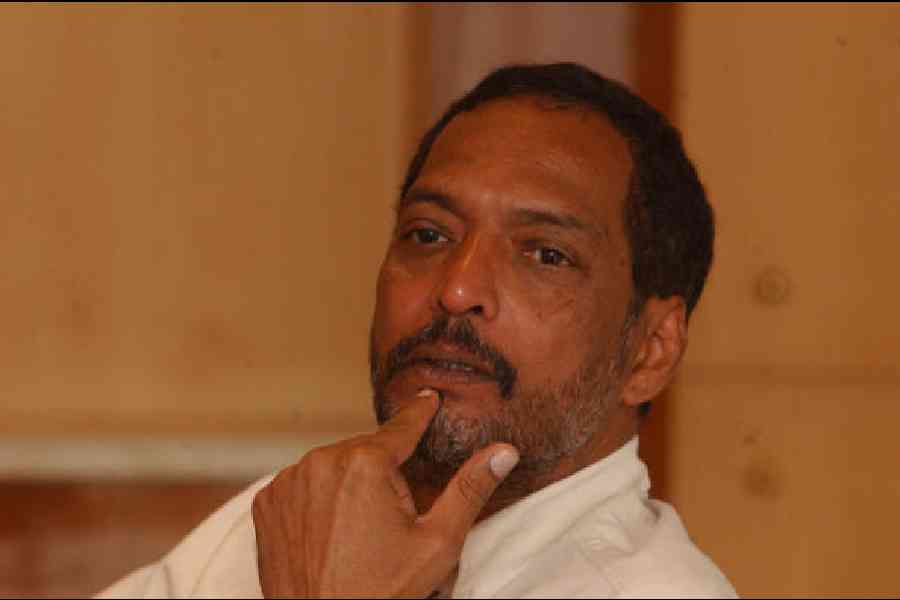The Meghalaya honeymoon murder has brought to the fore the need for parity in gender justice. The law specifies gender equality on paper and society may back it on camera. But in its implementation, equality often gets hijacked in favour of women. During the #MeToo movement, men had their reputations castrated without trial in the belief that collateral damage was inevitable for the larger good. What was the larger good? Coming from the offensive space of presenting every woman as weak and vulnerable, logic was trashed and proof was deemed unnecessary. The imbalance had its consequences when an important movement that should’ve resulted in a safer world for women, petered out.
Where is Tanushree Dutta, who made those unsubstantiated charges against Nana Patekar and made him almost lose his job as an actor? Alok Nath, the benign bapu of Hindi cinema who in his personal life had a fondness for liquor, was so badly maligned that he retired hurt to his farmhouse. His presence in films like De De Pyaar De (2019) had feminists work up such a lather that the filmmaker had to explain that Alok was in it before Vinta Nanda had hurled sexual assault charges against him.
Unlike Alok, Nana Patekar faced #MeToo stoically and stayed on. Today, nobody remembers Ms Dutta or her filibustering supporters. An unperturbed Nana led the team of Corona warriors in Vivek Agnihotri’s The Vaccine War (2023) without controversial protests marring its release. Nana also did a central role in Anil Sharma’s Vanvaas (2024) and joined the celebrity-packed Housefull 5 as an oddly attired Indian cop from London. The 74-year-old Nana is the standing symbol of how a badly-staged gender movement failed.
More than anything else, the presumption that a woman is always the victim and a man always the predator skewered gender neutrality. Is Sonam Raghuvanshi a victim and was Raja, the murdered husband in the honeymoon case, the perpetrator?
While gender is still a discussion in 2025, there were two remarkable theatre plays in Mumbai last week that featured substantial women who lived decades ago. Coincidentally, both plays were real-life love stories told with warmth and mirth.
Ek Lamhaa Zindagi – A Love Story 1938-1979 narrates a tale about Raj Babbar’s parents-in-law, Sajjad Zaheer and Razia. One knew about Sajjad Zaheer’s revolutionary Marxist beliefs, his association with the Communist Party of India, the Communist Party of Pakistan and the Progressive Writers’ Association. But the play introduced Razia with Raj and Nadira Babbar’s daughter Juhi playing her own maternal grandmother.
In an intricate solo act of 100 minutes, Juhi pulled off a range — intense romance to anguish. Besides Razia recounting how her newly-wedded husband got her to discard the burqa and long separations where he was jailed in Pakistan while she vowed to stay in Hindustan with their children, the play also detailed how Zaheer had to fight for his Indian citizenship. Ineligible because he was in Pakistan during/after Partition, he got it only after Jawaharlal Nehru’s direct intervention. It was Razia’s strength as a woman ahead of her time that was worthy of applause.
Ek Mulaqat, where Shekhar Suman played Sahir Ludhianvi, revived the legendary, literary love story of the Urdu poet and Punjabi writer Amrita Pritam. “I didn’t memorise my lines,” Shekhar explained after pulling off a flawless performance. “I internalised Sahir.” Romance, wit and gentle reproaches flowed beautifully in Urdu between him and actress Geetanjali Tyagi. Above all, Amrita Pritam’s daring choices made the current Karan Johar brand of feminism — showcased in films like Gehraiyaan — look shallow and forced.
To quote Sahir, Kabhi kabhi mere dil mein khayal aata hai… that feminists need to revisit the word “equality” and not equate it with “gender privilege”.











